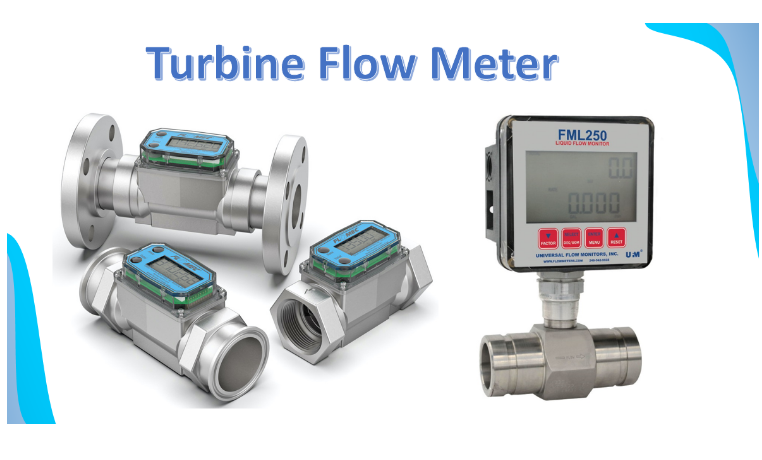What are Turbine Flow Meters?
A turbine flow meter is a type of flow meter that is part of a larger group of flow meters that can be called a "rotating vane flow meter" or "rotating vane flow meter". Among these types of flow meters are turbine flow meters, paddle wheel flow meters, and Pelton wheel flow meters. In each version, the shape of the element that is being spun by flowing media differs a little bit.
What is the working principle of a turbine flow meter?
As a result of the motion of the flowing media, turbine flow meters utilize the motion of the flowing media in order to turn a rotor that is angled, twisted, or bladed. In a sense, the flow is parallel to the axle in turbine flow meters. It is easy to visualize this concept by looking at things like outboard motors, windmills, airplane engines, and simple house fans.
In order to detect the motion of the turbine as the media moves through the pipe, a magnetic, inductive, or optical detector is used to detect the motion of the turbine. Turbine rotational speed is directly proportional to volumetric flow rate within the flow, so a frequency output is either used directly or converted into an analog proportional signal to be used to drive the turbine.
What are the Advantages of Turbine Flow Meters?
There are many advantages to using turbine flow meters.
* It is more affordable than other types of technology
* Response time is fast and repeatability is high
* Maintenance-free and easy to install
* Mounting positions that are universal
* Volumetric flow measurement is provided directly
* There are many that can be coupled with monitoring electronics
* Drop in pressure is minimal
* Low flow rates can be detected
What are the Disadvantages of Turbine Flow Meters?
In order to determine whether turbine flow meters are suitable for a particular application, a few factors must be considered.
* Excessive wear is caused by over-ranging (running above maximum flow rate)
* It is necessary to filter out ferrous particles upstream of the flow meter in some cases
* Some models can be affected by magnetic particles in the water
* For accurate readings, pipes must be consistently full
* Although some models are bidirectional, most are not
* Their primary application is for media that is clean and low in viscosity
* In order to reduce flow turbulence, they require straight piping
What is the accuracy of turbine flow meters?
Among the mechanical methods of measuring flow, turbine flow meters are extremely accurate in terms of accuracy. The only way to guarantee better accuracy than a turbine meter would be to choose one of the flow measurement technologies that does not use a mechanical means of measurement, such as magnetic or Coriolis flow meters. An average turbine flow meter is estimated to be 0.5% to 1.5% accurate.
This type of flow meter is generally much more accurate than its other rotating vane counterparts and other mechanical flow meter technologies. It is estimated that paddle wheel flow meters have an accuracy of 2.5% to 5% and Pelton wheel flow meters are estimated to have an accuracy of 1.5% to 3%. Visit our article for a comprehensive explanation of flow meter accuracy in all the different flow meter technology types.
Buying a turbine flow meter From China
It has become very common for men and women to experience the uniqueness flow meters bring to them every day. The purchase of the best turbine flow meters has become essential in so many different industries around the globe. There is an unbelievable belief or perception that devices made in or imported from China do not meet the quality standards required all over the world. Although there are many types of flow meters on the market, buying a China flow meter will give you a sense of what it feels like to have all your water, sewage, and other plant requirements met. A turbine flow meter is considered to be the best and most unique flow meter on the market.






















 sunrise
StableDiffusion
sunrise
StableDiffusion
 bonfire friends
StableDiffusion
bonfire friends
StableDiffusion
 sadness
StableDiffusion
sadness
StableDiffusion

 purple skies
StableDiffusion
purple skies
StableDiffusion





